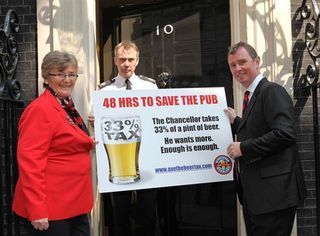What's wrong with government by petition?

There was huffing and puffing round the breakfast table this morning as we listened to the government's new gimmick -- that successful on-line petitions should get a parliamentary debate, and even made into a bill. The Labour MP (Paul Flynn) had some sensible things to say about the idea... but as the husband pointed out, it's a pity the Labour party hadnt neen more sensible when they started this whole e-petition idea. It was, after all, their gimmick in the first place.
So what IS the matter with the idea?
Well, for a start, it is a veneer of popular power, a substitute touted as the real thing. Mass e-petitioning looks as if it is putting power back into the people's court. But actually it is more likely to give an outlet to the computer-literate, with time on their hands and an axe to grind (which is decidedly skewed sub-category of 'the people'). Remember how the Today programme had to stop it's annual 'person of the year' competition because all kinds of maverick campaigns launched all kinds of very odd people into the top of the list.
Second, it is taking us in the wrong direction in terms of legislative activity. What we need is less legislation, fewer white papers -- not more. That is to say, we need a bit more sense that the solution to every problem is NOT a new law. This e-petition idea risks turning us all into amateur law-makers.
And finally, it turns the complexity of politics into a competition between single issue interest groups (and that in the long term has the effect of taking power away from 'the people' not giving it back). Of course we would all like to save the sparrows and the bees, stop rape, and have a better public transport system . . . and no doubt you could get 100s of thousands of people to sign up for those causes. But the real politics is not about signing up to some obvious good causes, it's about balancing and prioritising a competing selection of good causes. That's what, for us, the parliamentary process is all about. And anyone who wants to see the fatuity of the petition mode could well study the fruitless Californian system of "propositions" which serve to paralyse more than enhance government.
So far, I guess, so obvious.
But a quick look at the Downing St "petition" site only makes one even gloomier -- if for rather different reasons.
For a start, it's not clear that in practice this government gimmick is offering very much. Unless the site was having a hiccough over Christmas, there appear to be no current, open petitions at all (maybe people are fed up with the Labour gimmick already).
And of the closed petitions, I reckoned that since 2007 only eight got over the magic figure of 100,000 that would give them any parliamentary time. 3 were about fuel and other motoring issues (and I dont think that these were being neglected, even without a petition . . . MPs arent THAT unrepresentative!), 1 was about creating a military hospital, another about having a Remembrance day public holiday and another about letting the Red Arrows fly past at the 2012 Olympics. The other two were asking for the abolition of inheritance tax (128,622 signatures) and the abolition of plans to build a "Mega Mosque" (281,882).
Now some of this amply confirms the arguments I sketched in the first part of this post. I have no idea what campaign was driving the more than half a million signatories who wanted to see the Red Arrows at the Olympics, but as a rather pained government response makes clear, they hadnt been banned from appearing anyway:
"This allegation is not true. The Government has not banned the Red Arrows from the London 2012 Olympic Games. The organising committee of London 2012 will decide what to include in the Opening Ceremony and other celebrations - but with almost five years to go, decisions are yet to be made on what these will look like."
And, as for the inheritance tax lobby, this is exactly the kind of single issue campaigning that gets in the way of joined up financial thinking (so where do they want to find the money that is 'lost' to the public purse?).
But a closer look at the website gives a different slant. The whole thing is so monitored that it is only the 'voice of the people' in a terribly sanitised way. The most depressing part is the list of 'rejected petitions' -- those that have been deemed off limits, not qualifying for a response. There are more than 38,000 of these -- more than the total of those allowed through the system.
And what have they done wrong? In some cases they have talked about things that people really care about, but are sub judice or outside the Prime Minister's remit (" it is not appropriate to petition the PM regarding legal cases over which he has no jurisdiction"). Or they have written rather too frankly. A whole host get the chop because they "contained language which is offensive, intemperate, or provocative" (well offensive is one thing. . .but are we not allowed to be provocative in a petition?). Others are banned because they contained links to websites (so much for new technology), were funny, or because they "contained party political material" . . . err isnt this part of the political process?
So much for letting the people have their say. I cant stand this gimmicky idea anyway, but if I DID think that it gave us, the public, some direct influence over the political process, a good look at the website would make me think I's been short-changed.
Mary Beard's Blog
- Mary Beard's profile
- 4110 followers



